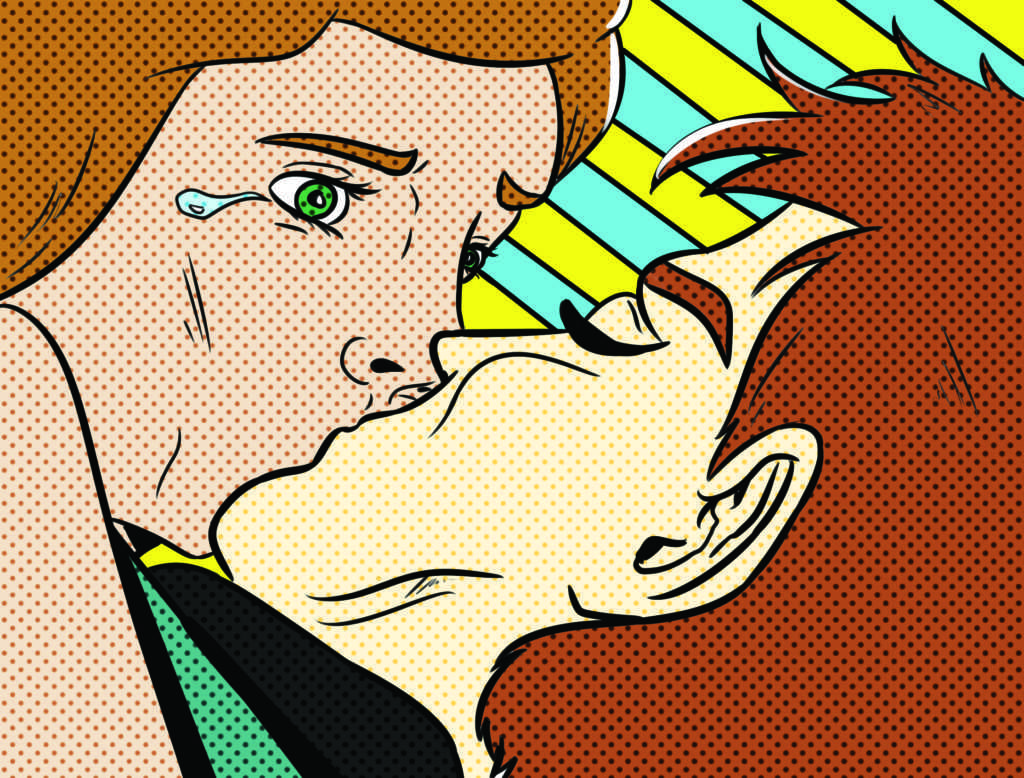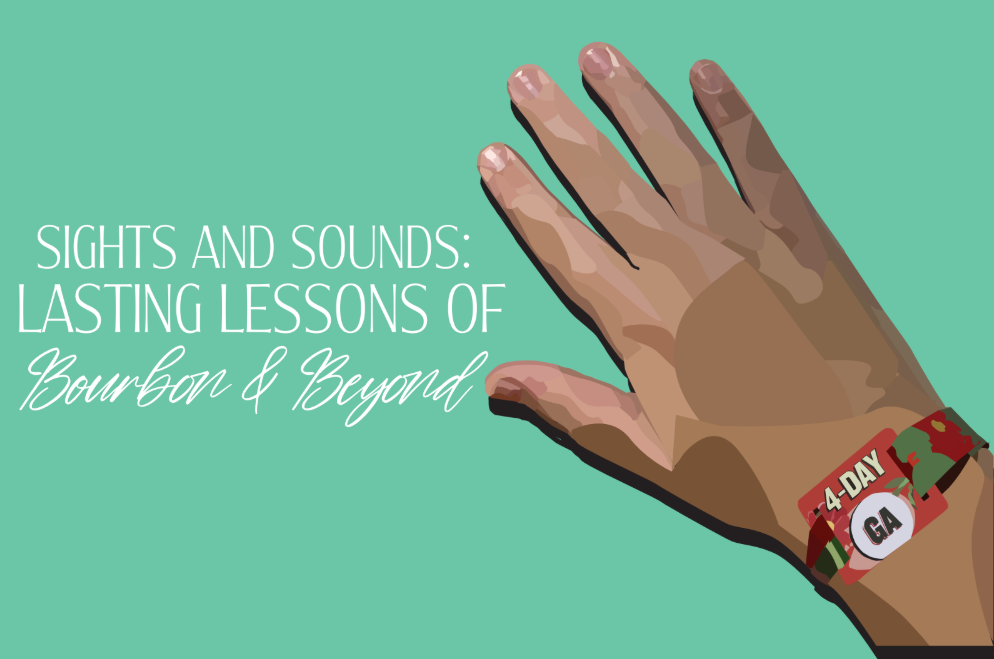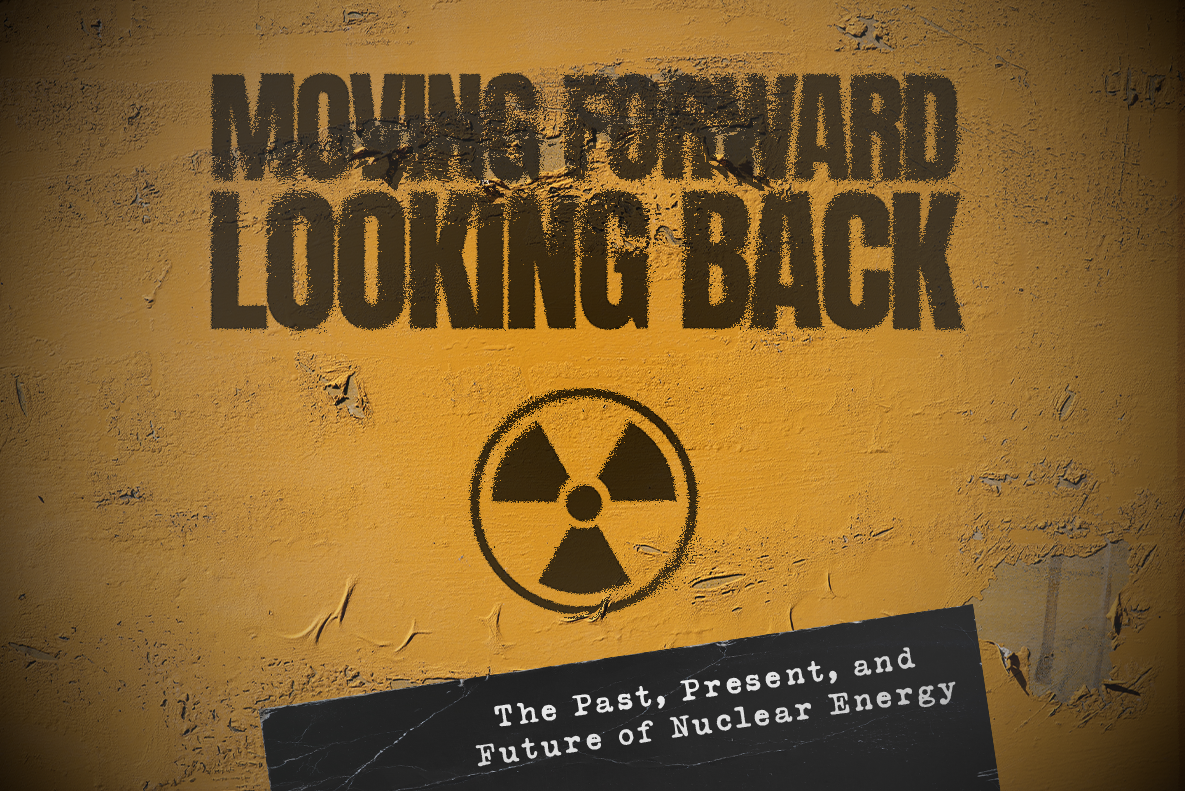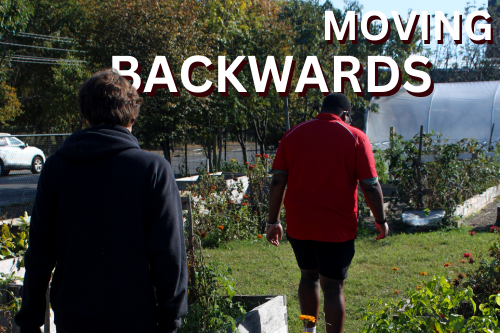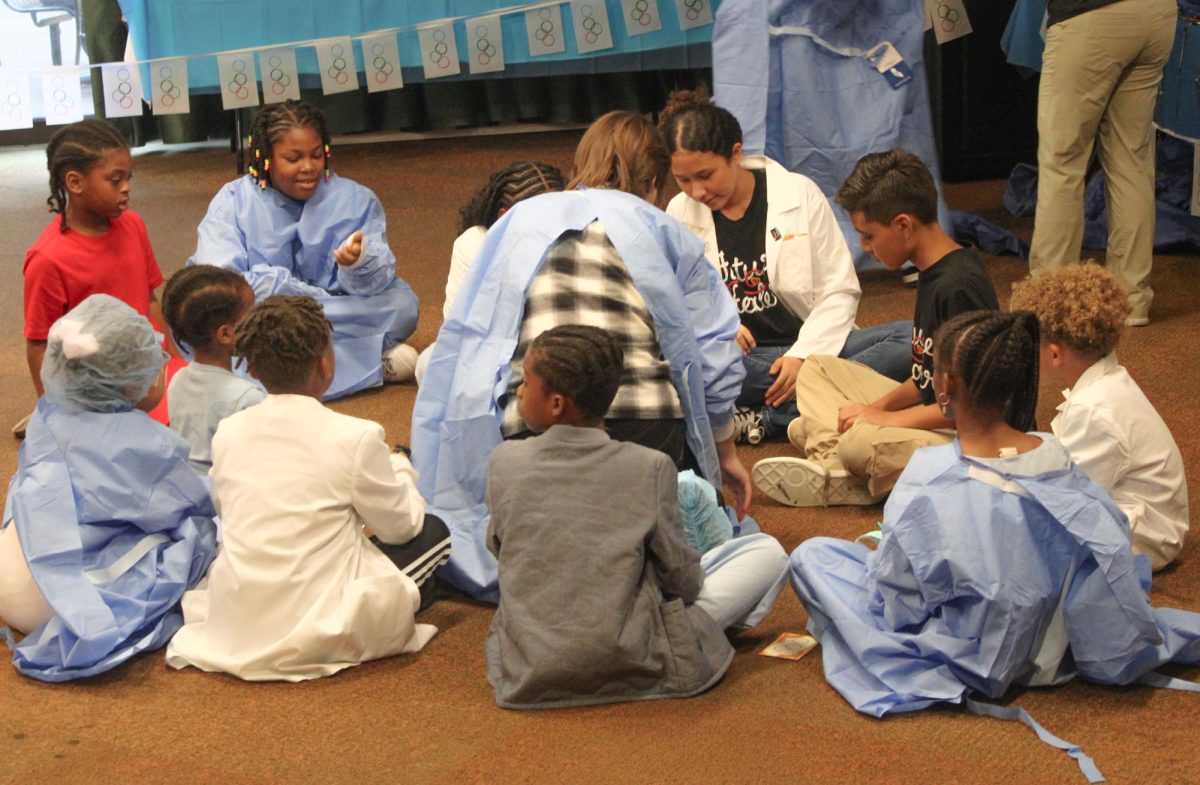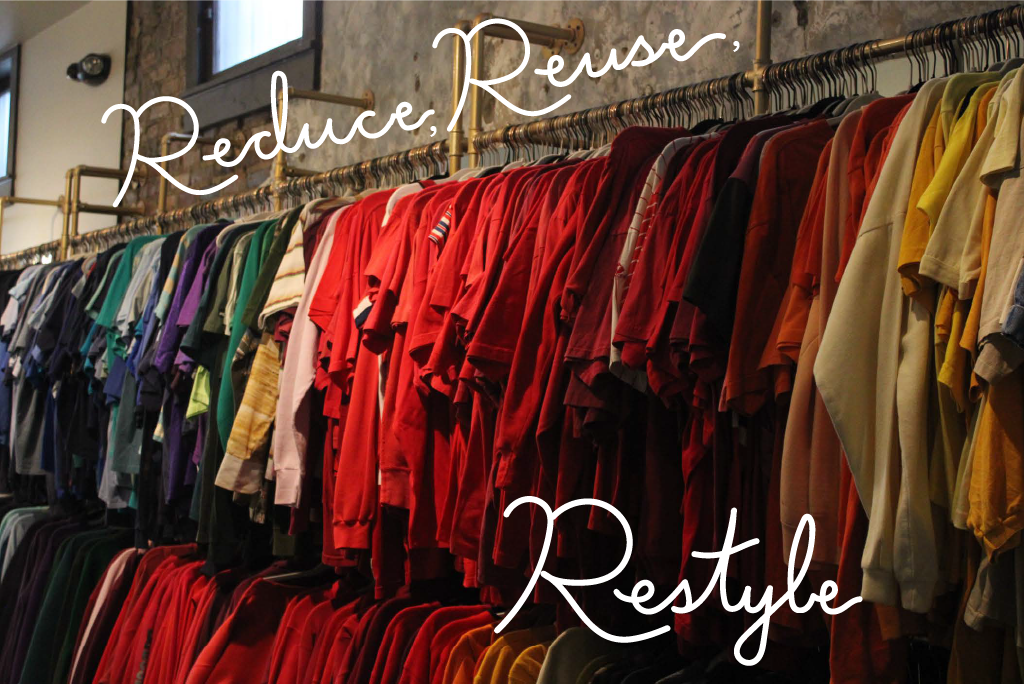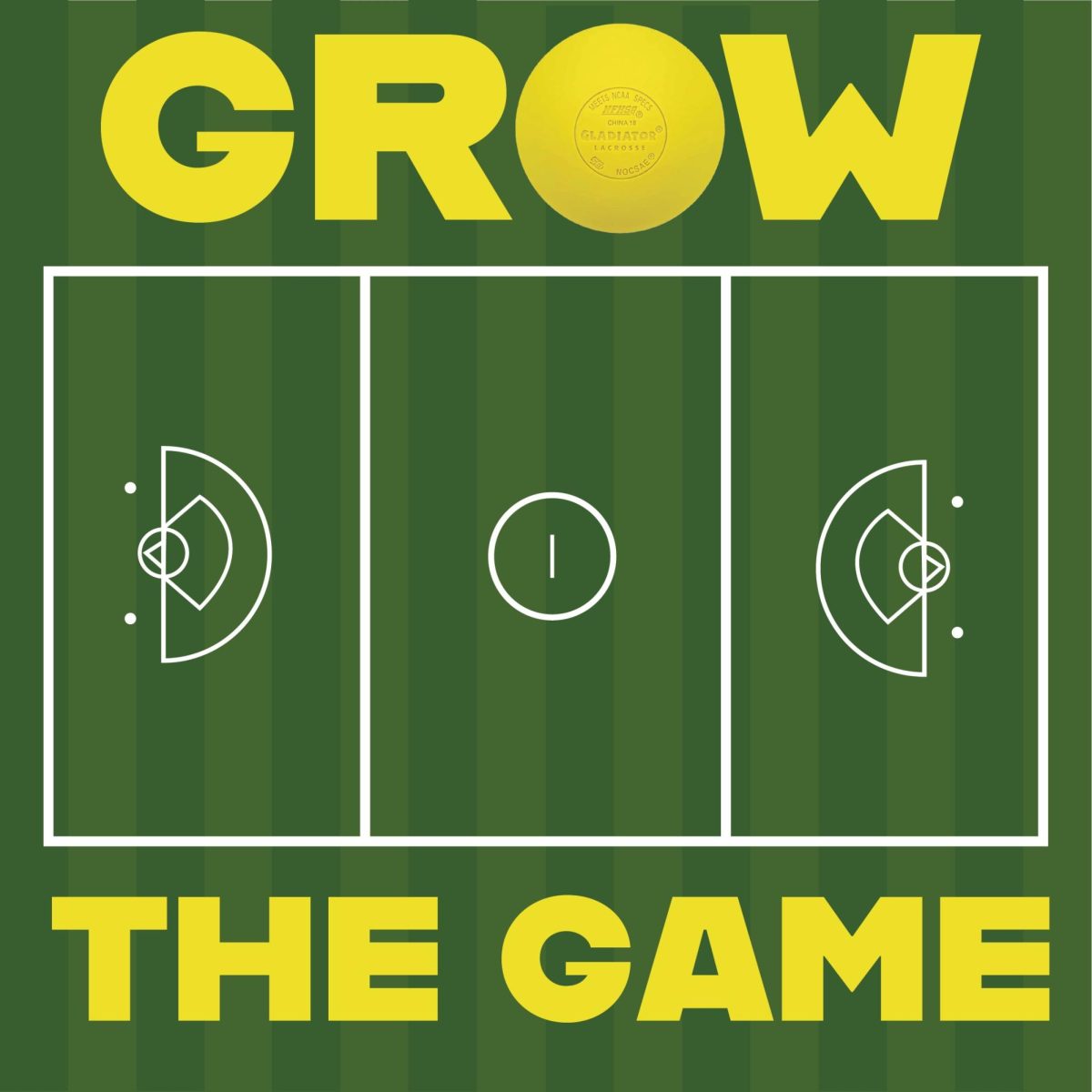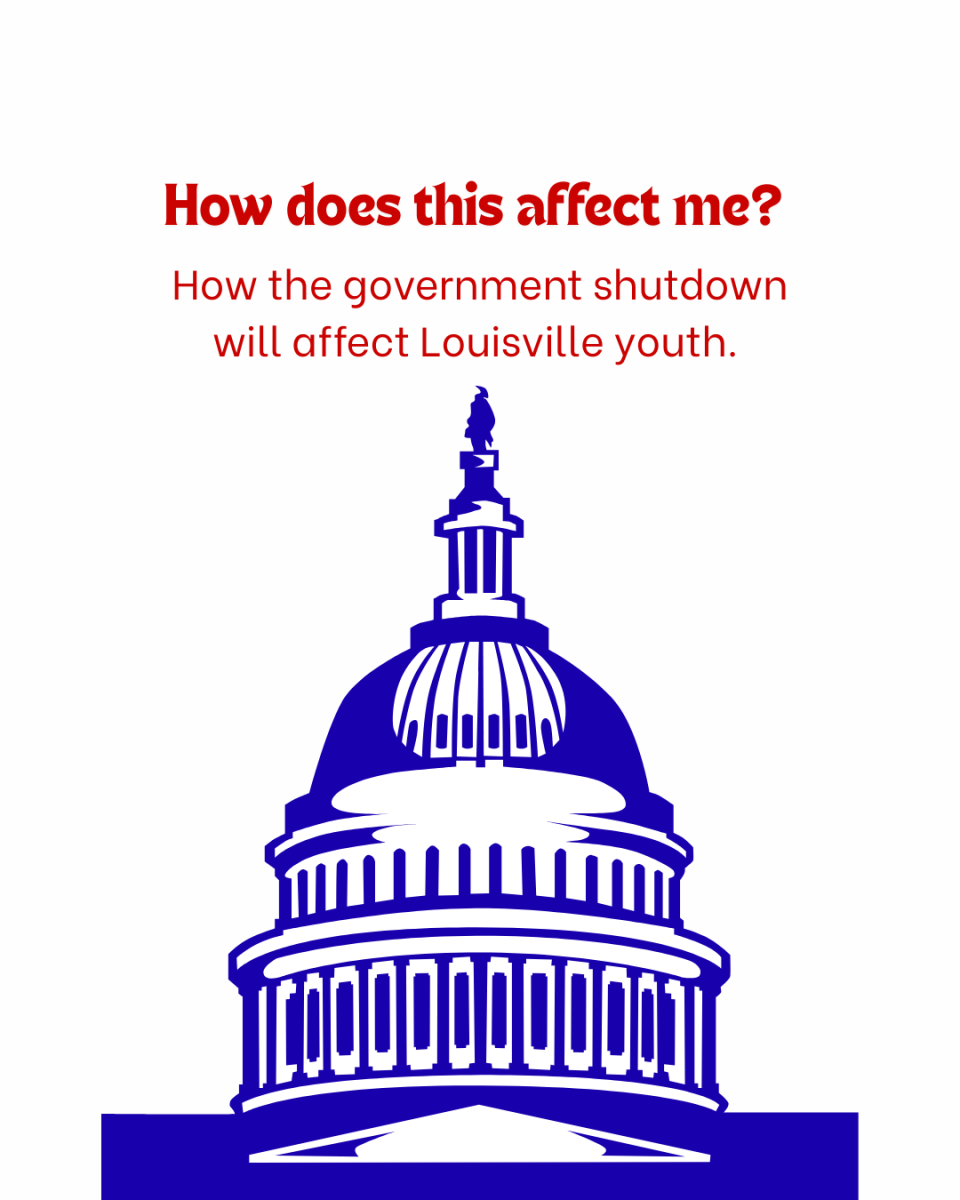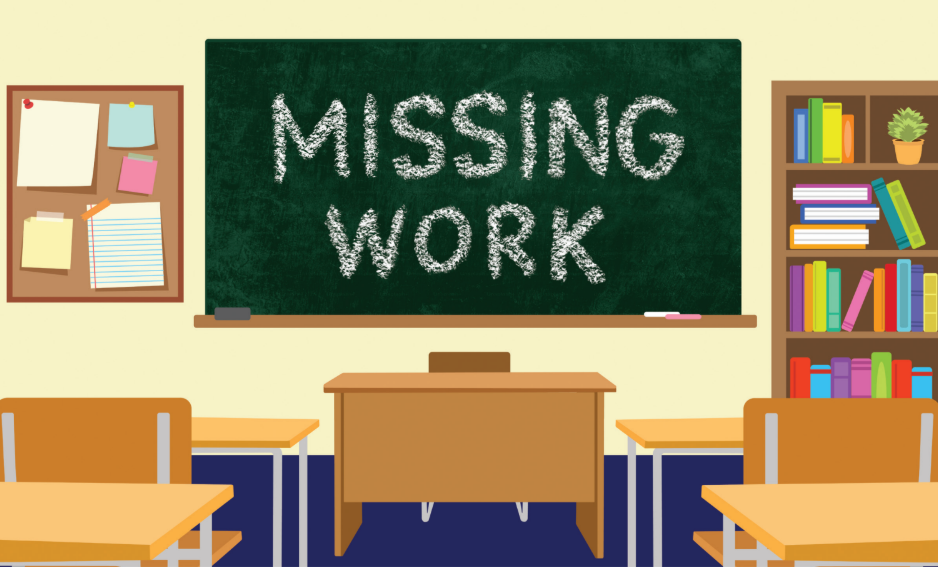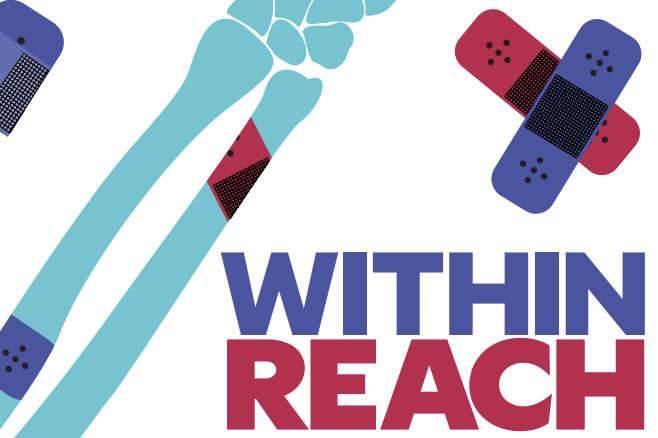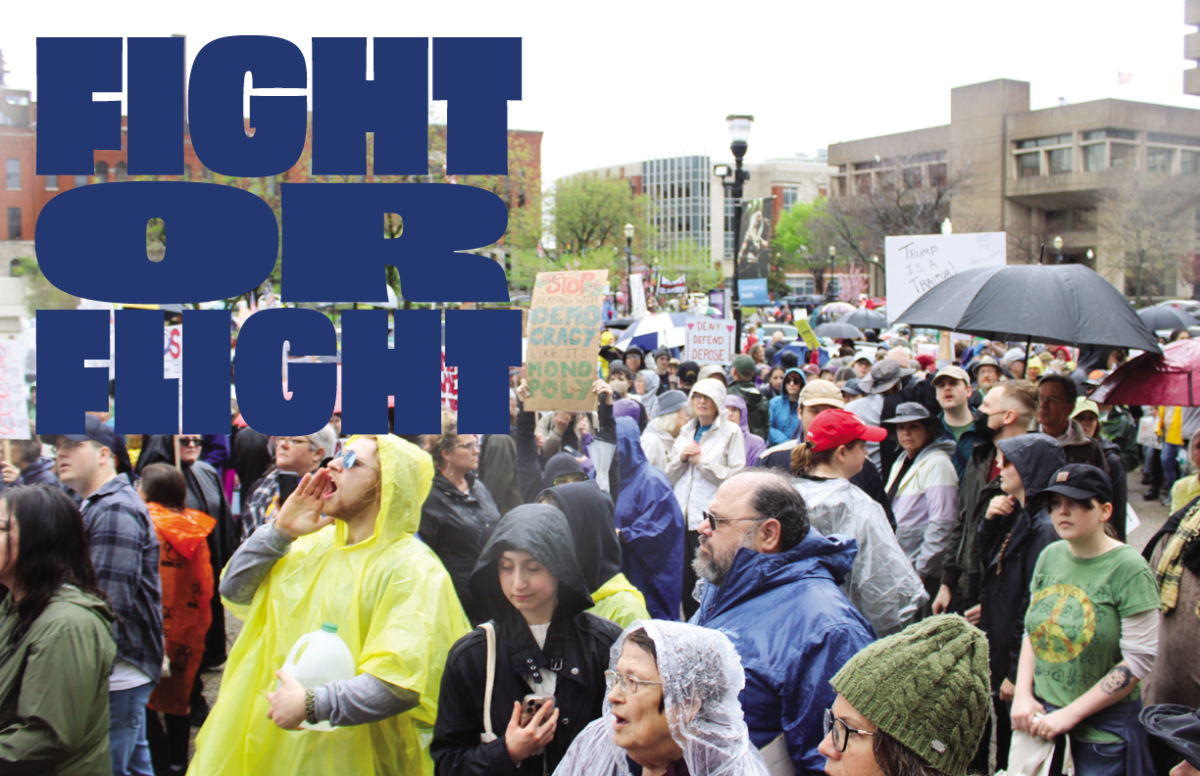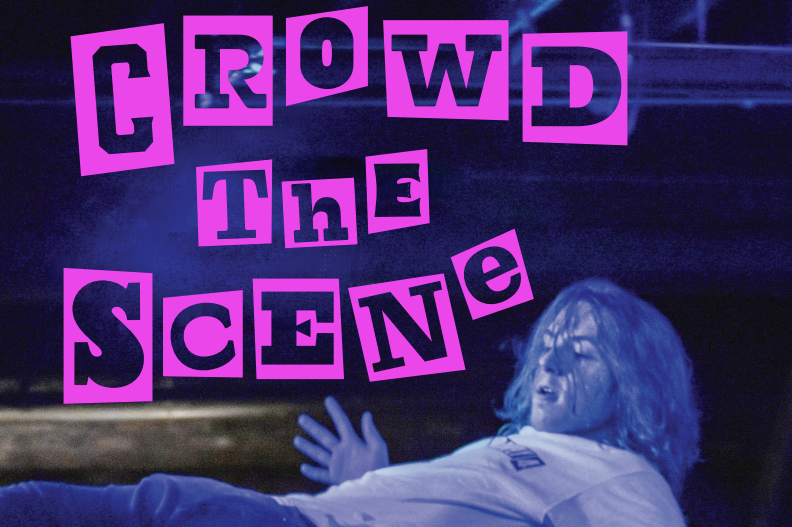It began like most school days. I had an assignment due, and I wanted to earn an A. I had practiced my delivery, but as soon as I began to speak in front of the class about sexual assault and harassment in schools, something changed.
I felt an extra chill in the already-cold classroom. I started to recognize that my informative presentation had turned into something much more personal. Faces flushed with shock and sadness. My heart pounded. After presenting the basic information, I moved through my 25-slide presentation for a second time and related it back to my own personal experiences.
I am a part of the 48% of high school and middle school students who have experienced sexual assault.
I am a part of the 35.8% of sexual assaults that happen to people between the ages of 12 and 17.
As I revisited my experiences in front of the class, I processed them in a completely different way. What was once just a project had turned into something that meant more to me, and as I looked out into the crowded classroom through blurry eyes, I could tell it now meant a lot more to others.
An informative presentation had turned into a cry for help – a cry for action.
The way people think about sexual assault as overtly violent discredits how ordinary it can be. Sexual assault can happen as quickly as walking down a bus aisle, when a student grabs another passing classmate. Sexual assault – and harassment – can be dismissed by surrounding students and those in authority, but for the victim it can have lasting repercussions.
COMING TO TERMS
I started therapy at the beginning of sophomore year to help me cope with an event unrelated to sexual assault. After working through that, the sessions soon transitioned into other problems I was having.
My therapist gave me a homework assignment to write down whenever something was bothering me, so we would have things to talk about the next time I saw her. As I went about my week, taking notes on my phone of all my little sad moments, I noticed that the majority of my notes were about sexual assault and harassment.

It was startling because I had never seen myself as a sexual assault victim. I didn’t realize what was happening until I had to write it down. I didn’t notice how constant the incidents were, and situations that wouldn’t have fazed me before now did.
Now as a sophomore,
I can trace the incidents – students plucking at my bra straps or discussing how fast my body was developing – to as early as fifth grade. That alone freaked me out because then I was just a child then.
It concerned me that “normal” incidents were the source of my problems. I consider sexual assault and harassment a big deal, yet I was treating these actions as if they were behaviors I had to tolerate.
My realizations led me to a gut-wrenching thought:
Sexual assault and harassment were so embedded in my life that I had never even noticed it.
NATIONAL IMPACT
Sexual assault and harassment happens, and it happens with alarming frequency. In fact, it was a hot topic in the recent presidential election.
The Washington Post released a recording from 2005 of now-President Donald Trump saying to former “Entertainment Tonight” host Billy Bush, “You know I’m automatically attracted to beautiful – I just start kissing them. It’s like a magnet. Just kiss. I don’t even wait. And when you’re a star, they let you do it. You can do anything. Grab ‘em by the pussy. You can do anything.”
Then over a dozen accusers came forward to allege that Trump acted in accordance with his words. For example, one accuser, Jessica Leeds, a businesswoman who sat next to Trump on a plane in the early 1980s, told the New York Times that he groped her and attempted to slide his hand up her skirt. A model named Kristen Anderson told the Washington Post she was at a New York nightclub in the 1990s when Trump tried to slide his fingers under her skirt.⁴ Trump denied their allegations.
In a recording from the Howard Stern Show in 2005 that surfaced during the campaign, Trump said that going into women’s dressing rooms was a benefit of his owning the Miss Universe and Miss USA pageants.
“You know, they’re standing there with no clothes,” Trump said in the recording. “‘Is everybody okay?’ And you see these incredible looking women, and so, I sort of get away with things like that.”
Contestants for both the Trump-owned Miss Teen USA and Miss USA pageants came forward to confirm that Trump did in fact enter their dressing rooms while the girls were changing. Despite the Howard Stern Show recording, his campaign denied these incidents ever happened, pointing to statements from other contestants who said they didn’t recall it happening.
So what are the consequences? While Billy Bush has since been fired from “Entertainment Tonight” because of his role in that incident, Trump escaped unscathed from the scandals, going on to become the 45th President of the United States.
It wasn’t the first time that a political figure has been accused of sexual assault or harassment. Connecticut politician Christopher von Keyserling was arrested after being caught on a security camera grabbing the genitalia of one of his employees. Paula Jones, one of former President Bill Clinton’s Arkansas campaign office employees, claimed that in 1991, Clinton pulled down his pants in a hotel room and tried to get her to perform oral sex. Mark Foley, a former Republican congressman from Florida resigned from his House of Representative duties after being accused of asking Congressional pages for pictures of their genitals.
When the many defenders of powerful harassers brush off this type of behavior, it not only says the behavior is okay, but it actually encourages it to continue. Adults need to lead by example, or children will be taught to dismiss signs or harassment as “locker room talk”— after all, that’s what their president is saying.
Yet the way that the Trump accusations mobilized people worldwide could be a sign that society is paying attention. In January, men and women gathered around the world in support of women’s rights and other social issues on the same day as the inauguration. These marches, which took place in Sydney, Berlin, London, Paris, and Kenya just to name a few, were in part a global response to these allegations, and addressing these issues hasn’t always been a public topic of conversation, as well as centuries of women’s rights issues. While these marches have expanded and given a louder voice to the movement, the issues remain misunderstood.
Too often, perpetrators and their defenders dismiss it as “just talk” or “boys being boys.” The denial exhibits another problem that many don’t see – such talk makes an atmosphere more conducive to further victimization. Donald Trump’s dismissal of his words and the actions he bragged of as just “locker room talk” speak to his lack of understanding of the issues, damage that is more evident to the victims who have survived being violated.
Interestingly enough, President Trump declared April to be National Sexual Assault Awareness and Prevention Month. Supporters point to it as a heartfelt call to action; critics dismiss it as a public relations stunt.
SHORT INCIDENTS, LONG TERM CONSEQUENCES
When I sat down to talk over the list with my therapist, she explained to me that what I was going through was in no way normal or okay.
The small but constant instances of sexual assault and harassment were the root of many of my internal struggles.
We observed that my experiences have made me self-conscious. Remarks about my body made me feel very uncomfortable in my own skin. Everyday, I pick apart my appearance, in part because the constant comments have made me more aware of myself physically.
I read a quote that I understood well. It came from a fellow journalist, Natasha Stoynoff, who alleged that Trump sexually assaulted her while interviewing him at Mar-a-Lago in 2005 for People Magazine.
“In those few minutes alone with Trump, my self-esteem crashed to zero,” she said. “How could the actions of one man make me feel so utterly violated?”
The persistent negative thoughts made me think that my body isn’t beautiful. For a long time, I was insecure about my body to the point of not really caring about myself. I brushed aside incidents that bothered me thinking that since they were so common, they shouldn’t have been as bad as they felt.
It took years of sleepless nights for me to learn that my feelings are valid. I did not see my experiences as preventable problems yet, but they still bothered me. This led to me dreading school days. There, I often focused not on what I was learning in class, but on keeping my eyes open. As I became more aware of these problems, I began to think of more ways that sexual assault and harassment has affected myself and others.
I realized how such abuse could lead to unhealthy relationships. For one, I’ve noticed how difficult it was for me to realize when I was being treated poorly in a relationship, and two, I was in the habit of settling for what I thought I deserved. Additionally, victims might not stick up for themselves in a sexual situation because of the same bad habits from those poor relationships, resulting in intercourse without clear consent.
No one should feel that way.
There have been times when I have felt unsafe at school. I’ve left class a little after the bell and been late to my next block on purpose just to avoid certain perpetrators. I can only assume that other students have felt the need to do the same.
My negative feelings toward myself make me so thankful for the people in my life. I have friends and family to show that I am significant. My experiences would have affected me more severely if I didn’t have positive influences. Not everyone is blessed with those people.
It also taught me about victim-blaming, which places blame on the victims of abuse or crime.
The nonprofit Center for Relationship Abuse Abuseness explains the consequences: “Victim-blaming attitudes marginalize the victim/survivor and make it harder to come forward and report the abuse.”
I was a casualty of others’ ignorance of sexual assault and harassment. I victim-blamed myself. I didn’t realize that it wasn’t about what I was doing; it was about what the perpetrators were doing.
Changing perceptions can help eliminate sexual harassment and assault for everyone. We need to call out our friends on social media when we see unsolicited comments about women’s bodies. Some assailants are not fully aware of the damage they are doing.
Something has to be done.
GETTING DOWN TO BUSINESS
Although it is a very personal and sensitive topic for me, I couldn’t think of a better outlet than to talk about sexual assault in a presentation for my journalism class. I hesitated to share my own experiences. When it came down to it, I knew that I would be contradicting everything I stood for if I left my experiences out.
I am a part of the statistics.
My experiences have impacted me.
At the end of my presentation, there was a slow applause that faded into silence. People started to cry but still sat there listening intently, as if I were still giving my presentation.
Hands started to rise. People began to share their personal experiences and relate to each other, leaning on one another for support. One girl admitted that she hadn’t realized she had been sexually assaulted until my presentation. I had broken emotional barriers. Something that had burdened me for as long as I could remember was also weighing down others, and I had done something to help lift that weight.
One student stood up and said, “At first I saw this presentation as very generic. I always knew that sexual assault was wrong, but never really absorbed it. When you started talking about your personal experiences, it hit me. You put it right in front of us, because when it is happening to someone we care about, we realize it is a problem that needs to be stopped.”
They began to realize they weren’t alone. My teacher let students stay after class to compose themselves. We all sat in a huddle, sharing personal experiences, hugging, crying. Finally sorrow turned to motivation, and the conversation switched from what had happened to what we could do to stop it from happening to others.
The discussion was about what we as journalists and people could accomplish, not what schools and higher authority could do. I’ve heard so many incidents where sexual assault took place in a classroom, and the major question was ‘Where was the teacher during all of this?’ We should also ask ourselves, ‘Where were the students?’ We can’t rely completely on a teacher; we should be able to speak out ourselves.
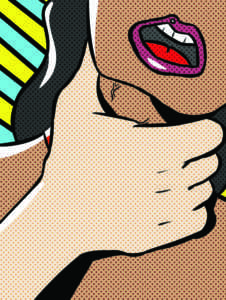
The school system and people in power should do everything they can to help the situation, but it really comes down to us. We need to change as individuals and as a society.
TIME TO ACT
I’ve heard of companies that require sexual-assault and harassment prevention training for their employees.
That made me wonder if there was any form of training required for my school. A Jefferson County Public Schools (JCPS) spokesperson told me that schools show an eight minute harassment and discrimination video to students in grades four through 12.
But I had no idea what video the spokesperson from JCPS was talking about. When I rewatched the video, it jogged my memory, but I found it bland. It had not grabbed my attention. I worried that others may have tuned out the video like I did.
It can be hard for us to remember what is important. That’s why we all have to get more involved.
Here are some simple, direct steps you can take to combat sexual assault at your school.
→ Define the action. People need to understand what sexual assault is and be able to identify if it is happening to anyone, including themselves. This also means knowing when you might be sexually harassing or assaulting someone else. I do not want anyone to have trouble recognizing the signs like I did.
→ Tell yourself these actions do not define you, they define the aggressor. I have blamed myself for a lot of what has happened to me. It took me a long time to realize that it wasn’t because I was wearing a certain outfit or that I did not call them out. The blame is on the assaulter, not you.
→ Go to an adult you trust for help. This adult can be a teacher, counselor, parent, etc. Do not be afraid to get the help that you deserve! No one should have to go through sexual assault alone.
→ Speak out! Change starts with dialogue.
The more people that start speaking up, the more they will inspire others to do the same.
In a speech responding to Trump’s scandals, former First Lady Michelle Obama talked about how it feels to be victimized.
“It is cruel,” Obama said. “It’s frightening. And the truth is, it hurts. It hurts. It’s like that sick, sinking feeling you get when you’re walking down the street minding your own business and some guy yells out vulgar words about your body. Or when you see that guy at work that stands just a little too close, stares a little too long, and makes you feel uncomfortable in your own skin.”
You deserve better than the catcalls that you receive down the halls of your school.
You deserve better than the feeling of someone’s hand on your body where it shouldn’t be. A gentle brush of someone trying to go unnoticed, or a more aggressive squeeze. When you turn around to call them out, they’re gone, or they deny that it ever happened.
You deserve better than the student in your class who whispers inappropriate comments in your ear on their way to the pencil sharpener. The comments that leave you wondering if you should cry or if you should laugh, because it was no big deal, obviously ‘just a joke’.
You deserve better than the words you hear behind you when a student drops a pen just they can watch you bend over to pick it up. The uncomfortable, watched feeling, as if you are doing something wrong.
You deserve better than the seemingly simple pluck at your bra strap as if to call you out for wearing a necessity. The pluck that makes you feel unsure and scared of your changing body.
You deserve better than the person who sits in the desk next to yours, inching closer to you. Their hand brushes your leg, slowly moving up where it should not be. You don’t want to make a scene and call them out, you don’t want to hear them deny it if you do.
You deserve better than those “casual” incidents that leave a long-lasting imprint on your mind. Your body is valuable. We need to work together to ensure that these crimes against our bodies don’t go unpunished. It is hard to speak up, but sometimes the hardest thing and the right thing are the same thing. If we work together, we can stop people from seeing sexual assault as an embarrassing topic. Soon it will be normal to speak up. •


